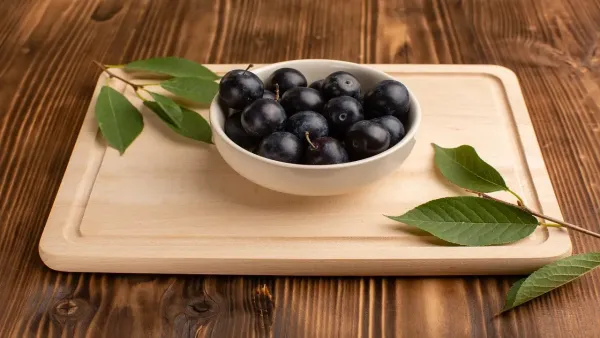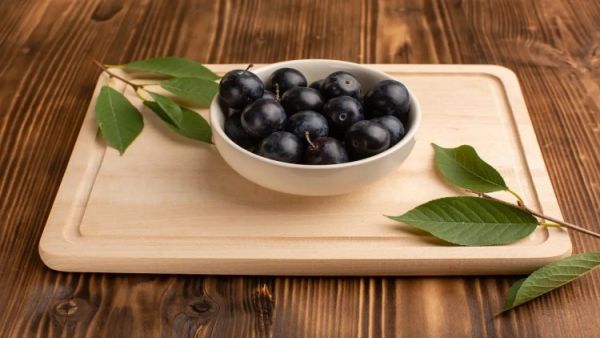
The best way for diabetics to maintain healthy blood sugar levels is to combine exercise and nutrition. The body normally produces insulin to regulate blood sugar, but this process may malfunction and result in hyperglycemia, or elevated blood sugar. For diabetics, controlling blood sugar is essential since persistently elevated levels may cause serious consequences. Natural remedies may be beneficial, such as eating the leaves of the Indian blackberry fruit, or jamun.

Antioxidants, vitamins, and minerals including calcium, potassium, and manganese are all abundant in these leaves. They may reduce blood sugar, soothe allergies, and relieve constipation because they have antiviral and anti-inflammatory qualities. Furthermore, it is thought that jamun’s anthocyanins fight cancer cells.
How Do Jamun Leaves Aid in Controlling Blood Sugar Levels?
Jamun leaves’ low glycemic index and rich phytochemical content make them advantageous for diabetes management. Active ingredients in these leaves, such as jamboline and jambosine, assist raise insulin levels and limit the release of sugar into the circulation. According to Ayurvedic principles, this helps turn starch into energy and lessens the symptoms of diabetes, such thirst and frequent urination. Furthermore, extracts from the bark, seeds, and leaves of jamun have shown efficacy in the treatment of diabetes.
Using Jamun Leaves to Manage Diabetes
Indian blackberry leaves, or jamun leaves (Syzygium cumini), are well-known for their possible health advantages. They have been used for generations in traditional medicine and are said to provide a number of benefits, such as:
Diabetes Management: The ability of jamun leaves to help control blood sugar levels is perhaps its most well-known benefit. They include substances that may reduce blood sugar, such as jamboline. People who have diabetes or are at risk of getting the disease are often advised to consume jamun leaves or their extract.
Antioxidant Properties: Jamun leaves are a great source of antioxidants that assist the body fight off damage from free radicals and oxidative stress. Antioxidants are essential for preserving general health and averting chronic illnesses.
Anti-inflammatory Effects: It’s possible that the jamun tree’s leaves have anti-inflammatory qualities that may assist lower bodily inflammation and ease inflammatory diseases like arthritis or joint pain.
Digestive Health: Traditional medicine has used jamun leaves to address digestive problems. They may alleviate diarrhea, lessen gastrointestinal symptoms, and enhance digestion.
Dental Health: There are potential dental health benefits of chewing jamun leaves. Because they have antibacterial qualities, they are thought to aid with gum and tooth issues.
Weight control: According to some research, jamun leaves may help with weight management. They are believed to have a part in regulating hunger and avoiding overindulgence.
Cardiovascular Health: By lowering oxidative stress and promoting healthy blood vessels, the antioxidants in jamun leaves may benefit heart health.
Liver Health: Jamun leaves may help shield the liver from harm by having a hepatoprotective effect. Those who have liver problems or are at risk of liver damage may benefit from this.
Skin Health: By lowering free radical-induced skin damage and delaying premature aging, the antioxidant qualities of jamun leaves may help promote healthier skin.
Wound Healing: Jamun leaves have been used topically to wounds and skin disorders in traditional medicine. They are thought to have anti-inflammatory and antibacterial qualities that promote healing.
It is noteworthy that while jamun leaves have been used for their possible health advantages, more scientific investigation is required to completely comprehend and confirm their efficacy. See a healthcare provider for advice if you are thinking about using jamun leaves or their extracts for any particular health issues, particularly if you are on medication or have underlying medical illnesses.